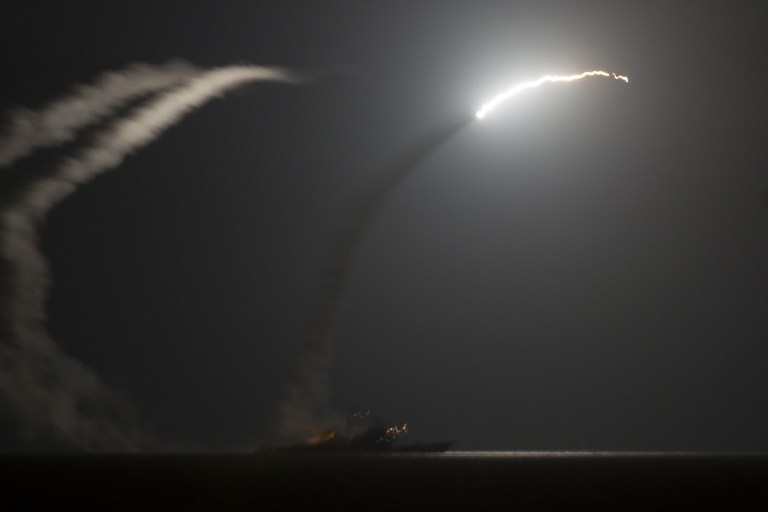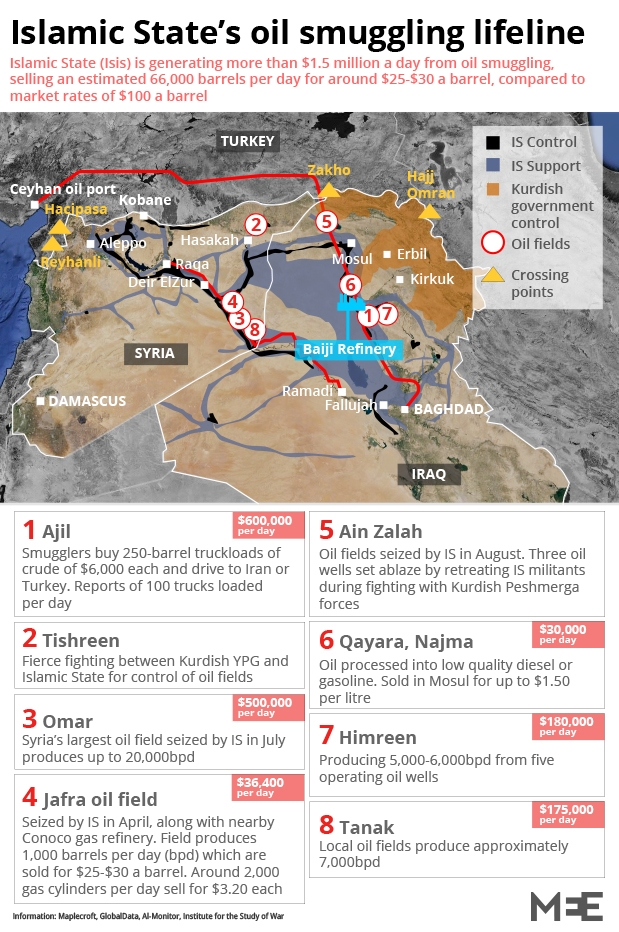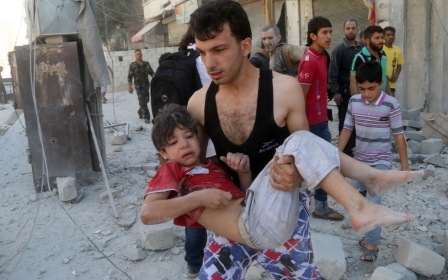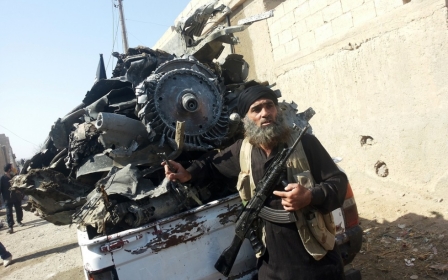Few certainties, many hurdles as US, coalition wade into Syria

Three and a half years into a civil war that has killed more than 200,000 people, the US and a coalition of Arab and European states on Tuesday launched straight into the conflict in Syria, striking Islamist militants across the rebel-occupied north-east of the country.
After repeated warning of the dangers of a military escalation in Syria, President Barack Obama said the US is now undertaking ‘a comprehensive strategy to degrade and ultimately destroy’ the Islamic State group (IS) whose military success and brutality has shocked Western observers.
But analysts say there are few certainties in this new American war and many more hurdles. Lacking a vision for how to defeat the Islamic State group, now embedded amongst Syrian civilians, or a clear sense of what victory would look like, the US may find itself stuck in an intractable, regional and potentially unwinnable war, forced to fight groups who are themselves fighting a dictator they hope to topple, as the country strays ever closer to an alliance with Syrian President Bashar al-Assad.
'Military-lite' war from the skies
The US has yet to lay out a vision for how it intends to pursue this fight. But Tuesday’s attack – a series of scattered air strikes assisted by unmanned drones – suggests that a ‘military-lite’ war waged from the skies will be its primary tactic. But if Obama is serious about his plan to not just contain but also defeat IS, analysts say the US will need to go much further than air strikes. Instead, a sustained, inclusive and wide-reaching campaign that combines both air and ground offensives with local fighters will be required to defeat the group.
“Air strikes can only take you so far. We’ve seen that in Iraq, in Afghanistan and this group is in many ways more powerful,” said Julian Barnes-Dacey, a Middle East and North Africa fellow at European Council of Foreign Relations ECFR. “If you’re not prepared to dispatch ground troops, then you’re dependent on local actors. The US will have to build up local fighting groups and work toward a positon where the non-IS elements in the country are fighting together. The question is does America really stand a chance of doing that?”
Divisions on the ground in Syria – many rebel groups often in competition and with divergent tactics and aims – will make building a local, anti-IS coalition difficult. A more likely scenario, analysts say, is for America to launch an “opportunist” war, one that resembles its drone war against al-Qaeda in Yemen more so than its battle in Iraq where US-trained Iraqi soldiers are trying to push Islamist militants out through a ground campaign.
“Obama has crossed the line, something he has been trying to avoid for three years. Now they’re in, America will want to maintain its presence,” said Aron Lund, editor of Syria in Crisis, a website run by the Carnegie Endowment for International Peace. “They’ll keep their drones there and look out for Baghdadi and other leaders. I see this becoming opportunist, drones above Raqqa, picking off targets if and when they show up.”
Impact on IS?
Over 120 militants were killed in Tuesday’s strikes, according to AFP. But with thousands more fighters in their ranks, the impact the air strikes will have on the Islamic State’s day-to-day capabilities and operations remains unclear. Recently, IS has operated with relative freedom, roaming from city to city in conveys, selling oil seized from fields, and raising their black flag in town squares. The US-led campaign could stop that.
“IS will scatter, it will cripple their functioning. If you know you are being targeted, monitored, then you have a problem; you cannot use communications, move in large convoys, you cannot hold public meetings in the centre of Raqqa you might be hit by a missile. Large troop movements and its popular military parades are unlikely to continue at this point,” said Michael Stephens, Deputy Director, RUSI Qatar. “Just by the US being there, it causes paranoia and immobility, the effects are wider than the actual missile damage."
Others say that while air assaults may kill fighters in the group’s rank and file, the leadership, many of whom are believed to be in hiding, will be harder to target.
“When Obama threatened them, the leadership went underground. They knew this was coming,” said Andre Colling, a Middle East and North Africa analyst at Red24, a crisis management assistance company. “Even with drones flying, it’s going to take months and months to get anywhere near the leadership. They will dig in, mine major roads and approach routes to the north west and seek to conduct operations inside Syrian regime territory.”
The air strikes may also deal a blow to the group’s means of finance, mostly notably its seizure and selling of oil on the black market. In 2013, after seizing several oil fields around Aleppo, IS was able to smuggle thousands of barrels of crude oil on the black market to private buyers in Turkey and Iraq, according to David Butter, associate fellow and Middle East analyst at Chatham House.
“Selling oil worked well when they were under the radar, but it’s going to be increasingly difficult for them now that there’s a huge amount of attention on it. That said, IS’s financial strength comes more from its long-term operations in Iraq; protection rackets, extortion, networks with Iraqi tribes, resources built over time,” Butter said. “The group is sitting on a lot of wealth and that will take a while to drain.”
Arab allies
The involvement of Saudi Arabia, the United Arab Emirates, Jordan and Bahrain (each country’s exact role in the military action remains unclear) has led to a curious alliance of forces with Syria’s Assad, Iran, the US, Europe and Sunni Arab states coming together against a common enemy.
“These countries are all basically on the same page. This could be a rare opening, a chance for a diplomatic solution to the Syria crisis. The US could start by trying to leverage Asad over his concerns about IS,” Stephens said.
Perhaps the biggest concern looming over the military intervention in Syria is whether America will, through fighting Assad’s enemies, be forced to renege on its promise not to ally with the Syrian government.
“If you’re going to ultimately defeat the Islamic state, you first need to resolve the civil war in Syria. That’s the only way you’ll get an effective front against them. That has to include the regime and the rebels,” said Barnes-Dacey, the ECFR analyst.
“There’s no way IS can be defeated quickly," he added. "They will need a long-time campaign based on local alliances. Whether the US likes it or not, that may mean some kind of alliance with Assad.
New MEE newsletter: Jerusalem Dispatch
Sign up to get the latest insights and analysis on Israel-Palestine, alongside Turkey Unpacked and other MEE newsletters
Middle East Eye delivers independent and unrivalled coverage and analysis of the Middle East, North Africa and beyond. To learn more about republishing this content and the associated fees, please fill out this form. More about MEE can be found here.




